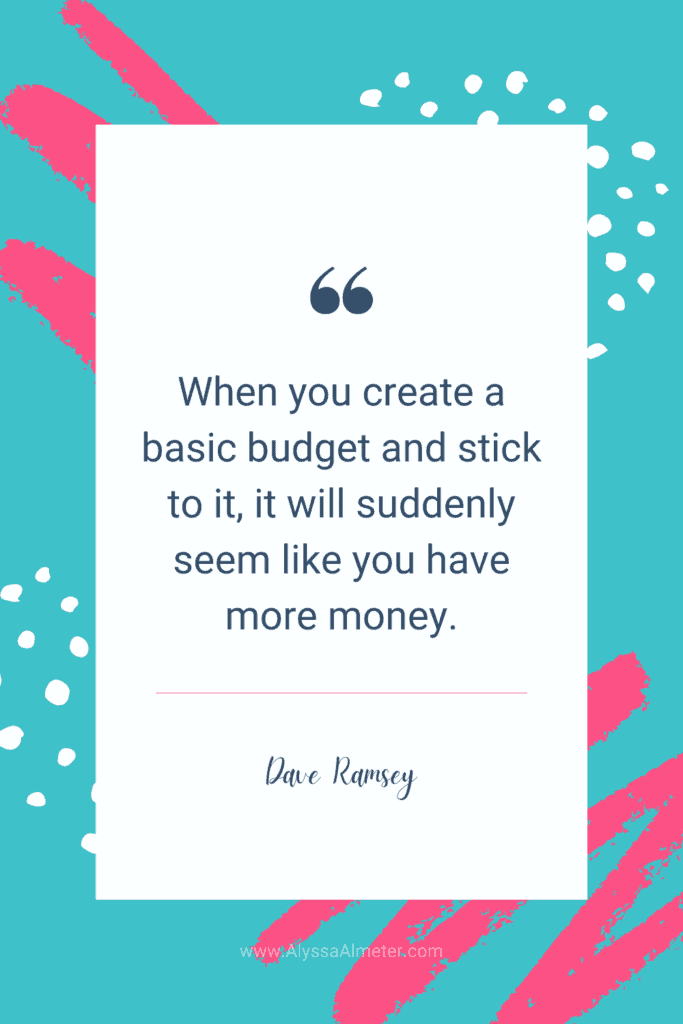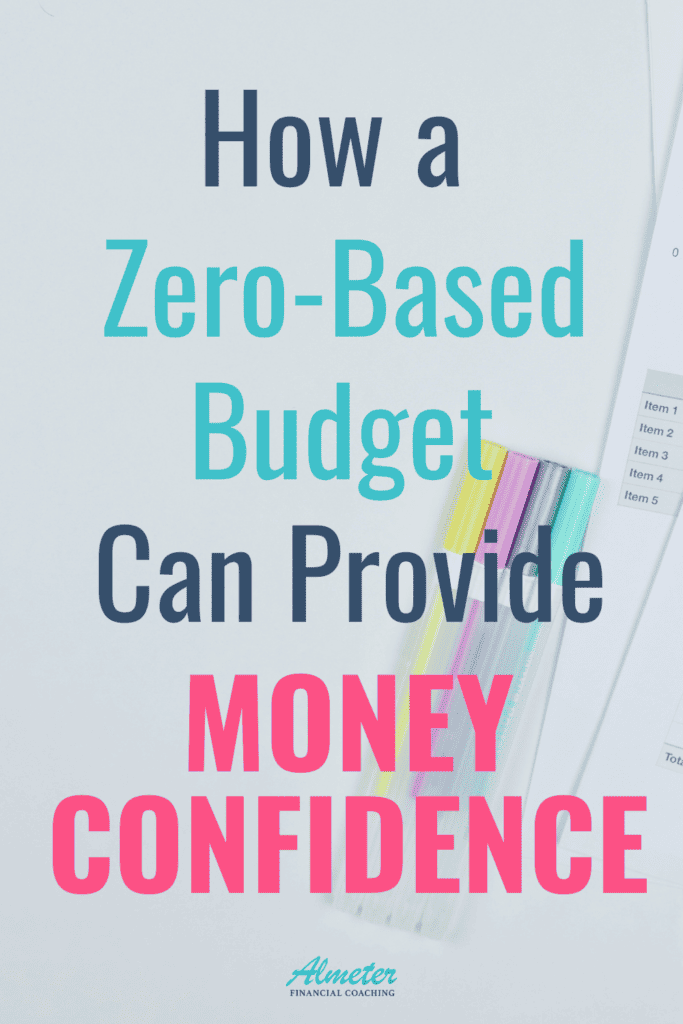This post may contain affiliate links. As an Amazon Associate I may earn from qualifying purchases at no additional costs to you. Please see the Policies pages for more info.
Building Money Confidence with Zero-Based Budgeting
Do you often wonder where all your money went each month? Do you have big dreams like paying off debt or buying a house but you’re not sure how to get there? Having a written monthly zero-based budget is the foundation to managing your money well. It is the tool that can help you achieve your financial goals and feel more financially confident!
Here are some common questions about zero-based budgeting to help get you started!
What is a Zero-Based Budget?
A zero-based budget simply means that your monthly income less monthly expenses equals zero. It’s assigning each dollar you earn to when you plan to spend. Setting up a zero-based budget just takes a couple steps.
First, l list out all your take home income for that month. Second, list all your expenses for that month, including household expenses, savings and debt payments. Include all your expenses until the total matches your income. Income – Expenses = 0
Why Should I Have a Written Zero-Based Budget?
A written budget gives you a visual each month of exactly how much money is coming in and how much money is going out. It provides you with a peace of mind because you know what you are spending and what you can afford without using credit cards and going into debt.
It eliminates the question, “where did all my money go?” because you know exactly where you spent your money. Financial guru, Dave Ramsey says, “When you create a basic budget and stick to it, it suddenly seems like you have more money.”

What Should I Budget For?
Each month you will want to include all your expenses for that month in your budget. When listing expenses, prioritize them by need first. This includes your basic costs for living – food, shelter, utilities and transportation. Once those are covered then you can move on to other expenses. Don’t forget to include any debt payments or money going towards savings.
How Often Should I Update My Budget?
Before the month starts, create a new zero-based budget for that month. But the budget is not a set it and forget it document. Just because you have it planned out for the month, doesn’t mean you don’t look at it again.
Throughout the month update your budget with expenses. You can do this each time you have a transaction or on a weekly basis. If you are new to budgeting you might want to keep a close eye on it and update whenever an expense is made. Once you get the hang of it, which typically takes about 90 days, then you can look at it weekly.
I like to do it weekly. The best way to do this is set aside some time each week to update your budget. If it helps you remember you can call it “Finance Friday” or “Money Monday.”

What Happens If I Overspend in a Category?
This is why tracking throughout the month is so important! Your budget will never be perfect and that’s ok! Tracking gives you the ability to adjust as needed along the way so you aren’t overspending your monthly income and going into more debt.
If you spend more money on one category then you will have to adjust another category or multiple categories. For example, if you spent $50 more on groceries than planned, then you will have to find where you can reduce other areas in your budget that make up $50.
How Budget with Irregular Income?
If your income isn’t the same each month because you are self employed or work for commission, budgeting is still important. You may think that it’s impossible because you don’t know what your income is each month but it’s not impossible!
It may not be as simple but it’s doable. In fact, I think it’s even a bigger reason why you should have a written budget. Having inconsistent income takes a little more planning and the budget will help give you peace of mind knowing you can cover expenses in the lower income months.
When listing your income, you will have to make your best guess. Refer to the season you’re in, and look at your income from past months to give you an idea. Use the lowest estimated number for your monthly income, not the average.
The lowest estimate is best because that will give you a baseline for planning your necessary expenses. Then consider any additional income for that month as bonus money that can be used towards debt or savings!
Where Should I Keep My Budget?
Where you have your budget depends on what works best for you. You can use pen and paper, an electronic spreadsheet or a budgeting app. You can also have a combination of both if that works for you.
Google Sheets has a nice basic template for personal budget if you don’t want to create your own. We used that for a few years until we started using a budgeting app.
My favorite budgeting app is EveryDollar. There is a free version and a paid version. The paid version allows you to connect your bank information so transactions automatically feed into your budget. But you still have to go in and categorize them.
EveryDollar is set up for zero-based budgeting so it will calculate your income and your expenses and clearly show you when you have a zero-based budget as you are adding your numbers. It also helps you track sinking funds and paying off debt.
Conclusion
By using a zero-based budget, you can take control of your finances, assign every dollar a purpose, and eliminate the stress of wondering where your money goes.
This approach not only builds confidence but also paves the way for achieving your financial goals.
Ready to take the next step toward financial wellness? Download my free Financial Wellness Checklist to help you evaluate where you stand and make informed decisions to secure your financial future.
Related Articles
Make a Budget: 5 Simple Steps to Get Started
Dave Ramsey’s 7 Baby Steps to Financial Peace
How to Budget While Living Paycheck to Paycheck
How to Budget in Each Stage of Life


